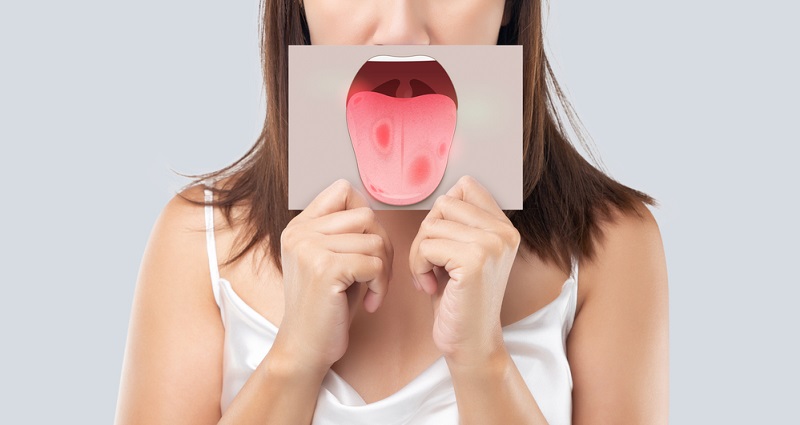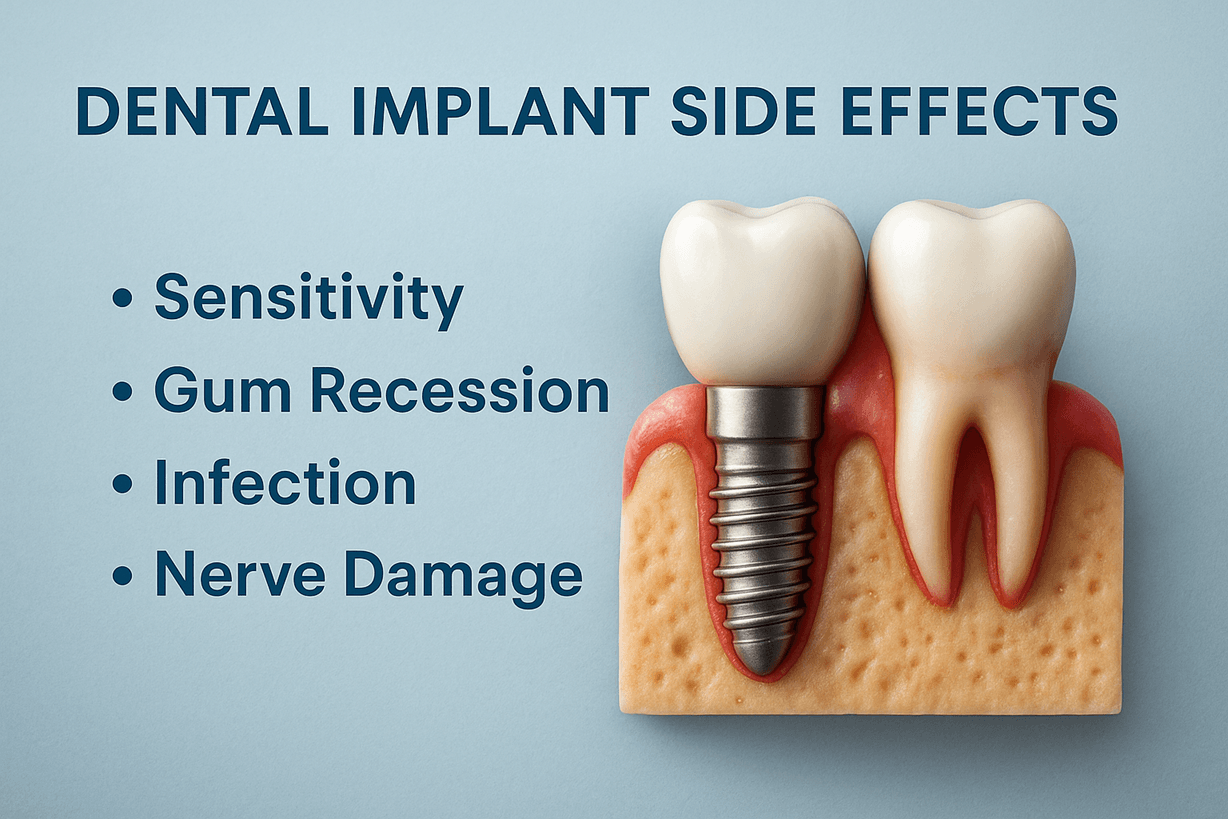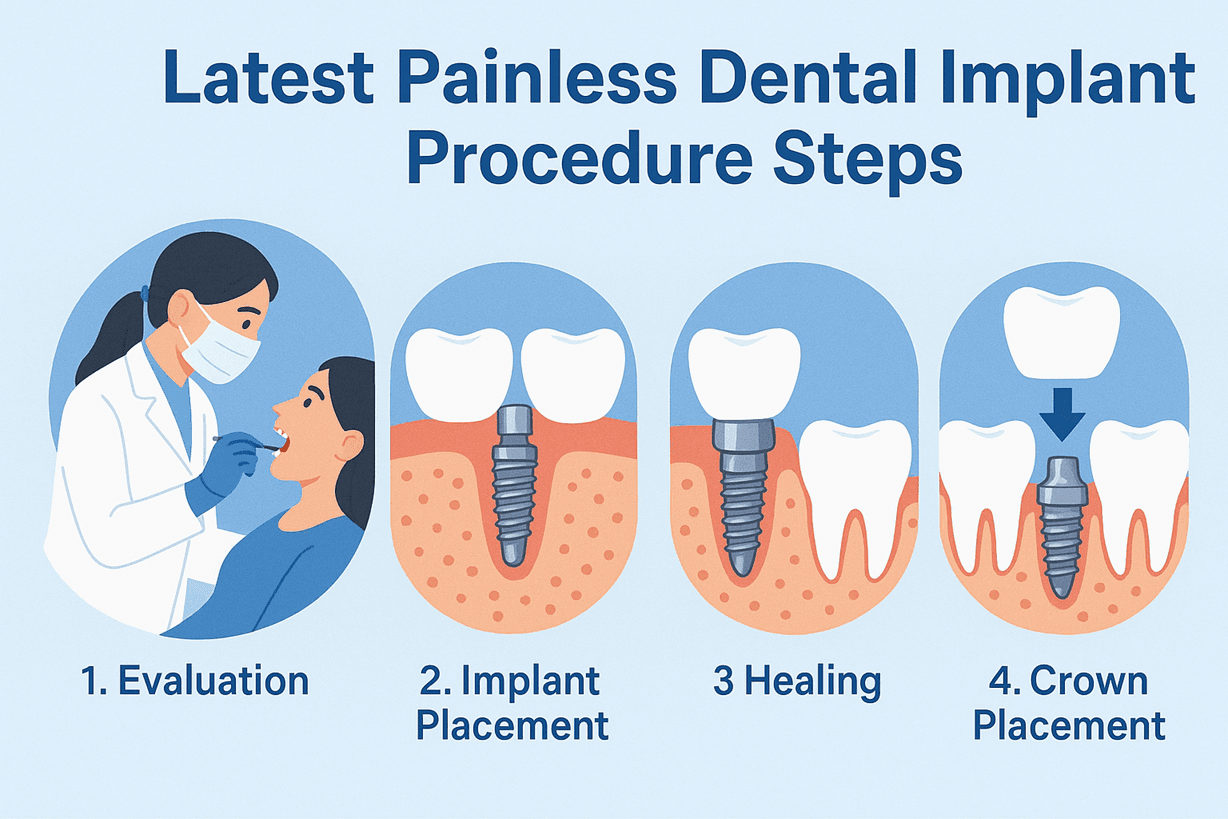Contents
- What Are Mouth Ulcers?
- Causes Of Mouth Ulcers
- Foods That Cause Mouth Ulcers
- Foods To Eat To Heal Mouth Ulcers
- Conclusion
Are you sick and tired of getting sore mouth ulcers every time you consume certain foods?
You're not alone! Dealing with mouth ulcers can be difficult and stressful. Fortunately, there are specific foods that trigger these pesky sores.

This blog post will look at the main causes of mouth ulcers and offer a list of delectable substitutes to help reduce their incidence.
So sit tight and get ready to discover how to prevent those excruciating mouth blisters!
What Are Mouth Ulcers?
Mouth ulcers are small, painful sores that can develop on the tongue, gums, or inside the mouth at any age. They often appear with redness and swelling, either singly or in clusters.
Causes include stress, hormonal changes, certain medications, autoimmune diseases, or even aggressive tooth brushing. In rare cases, they could signal a more serious condition like oral cancer.
While most ulcers heal on their own, relief can be found through over-the-counter gels, avoiding spicy foods, and maintaining good oral hygiene.
Causes Of Mouth Ulcers
Mouth ulcers are open sores that form on the gum line or in the mouth's lining. These ulcers can be quite uncomfortable and make it challenging to eat or drink.
Mouth ulcers can be caused by a variety of factors, including:
1. Injury to the mouth:
This includes physical harm like biting your cheek or teeth-grinding. Additionally, it might result from dental treatments like getting your wisdom teeth out.
2. Irritation:
Mouth ulcers can be caused by various irritants, such as spicy food, tobacco products, alcohol, and certain medications.
3. Allergies:
Certain allergens, such as latex or metals, can trigger the formation of mouth ulcers.
4. Infection:
Bacterial infections, such as those caused by strep throat or herpes simplex virus (HSV), can lead to the formation of mouth ulcers.
5. Disease:
- Diseases: Conditions like Crohn's and celiac disease can cause digestive tract inflammation, leading to mouth ulcers.
- Diet: Certain foods, especially hard, spiky, acidic, or abrasive ones, may trigger ulcers. Food allergies or sensitivities are also potential culprits.
- Habits: Smoking, drinking, and chewing tobacco increase the risk of ulcers by damaging mouth tissues. Reducing or quitting these habits is advisable.
To manage or prevent mouth ulcers, it’s essential to avoid irritants and maintain good oral hygiene. Read on for a list of foods to avoid if you’re prone to mouth ulcers!
Foods That Cause Mouth Ulcers
There are a few key foods to avoid if you're susceptible to mouth ulcers. spicy foods, acidic foods, and hard, crunchy foods can all trigger the formation of mouth ulcers.
1. Spicy Food:
This is one of the reasons that cause irritation and inflammation in the mouth, which can ultimately lead to the formation of ulcers.
Spicy meals can induce irritation and inflammation, exacerbating mouth ulcers. Spicy meals might be uncomfortable if you have an open wound.
Chilli peppers, curry, wasabi, and other hot foods should be avoided if you have mouth ulcers.
2. Citrusy Fruits:
Fruits that are rich in containing citric acid, are one of the most prevalent causes of mouth ulcer outbreaks.
Citric acid may be found in a variety of fruits and vegetables, including oranges, lemons, limes, and grapefruits.
Eating these fruits can significantly aggravate ulcers, lesions, and even healthy oral tissue.
3. Acidic or Citric Vegetables:
If you have a severe mouth ulcer breakout then stay away from raw tomatoes and tomato-based products.
They are acidic in nature, but they are also high in fiber, which may irritate your mouth even more.
The acids in tomatoes can also contribute to mouth ulcer formation by irritating the delicate tissue in the mouth.
This also includes tomato sauce and tomato soups. If you have canker sores, avoid pizza, lasagna, and pasta soaked in marinara - and, at least for now, find another soup to dip your grilled cheese in.
4. The Use of Alcohol:
Because alcohol is acidic, it can irritate the sensitive tissues of your mouth and gastrointestinal tract.
It can also harm your mouth's protective coating, making it easier for microorganisms to infiltrate the region and cause discomfort and inflammation.
Furthermore, drinking might cause your mouth to dry out, making recovery more difficult.
5. Hard and Abrasive Foods:
Hard, crunchy foods can damage the mucous membranes in the mouth, making them more susceptible to developing ulcers.
Alternatively, consume these in tiny bites. You might also mix the meals with something to alleviate the dryness and hardness.
Extra butter on toast, as well as raw veggies or potato chips with dip, may help your mouth deal.
6. Hot Beverages:
Coffee and caffeinated teas are naturally acidic. Furthermore, they contain a lot of salicylates, which might irritate your gums, tongue, and cheeks.
If giving up coffee and caffeinated tea seems too difficult, try limiting your intake or switching to decaffeinated choices.
Coffees, Teas, lattes, or any form of tea or coffee, are frequently consumed in big quantities, and we are unlikely to give them up.
If you have chronic mouth discomfort as a result, you may need to reduce your dose.
7. Carbonated or Fizzy Drinks:
Carbonated beverages like colas and other cool drinks and fizzy beverages are acidic and can irritate your mouth's delicate tissues and ulcers, while the sugar content can promote the growth of bacteria that can cause infection.
They are also known to damage your teeth’s enamel and cause teeth sensitivity.
To avoid developing mouth ulcers, it's best to avoid spicy, acidic, and crunchy foods as much as possible.
Instead, focus on eating plenty of soft fruits and vegetables, whole grains, lean protein sources, and low-fat dairy products.
These nutritious foods will help keep your mouth healthy and free from ulcers.
Foods To Eat To Heal Mouth Ulcers
It may look like there’s not much you can eat when you have mouth ulcers. But that’s not true.
Switching to a well-balanced diet, avoiding food triggers, practising good dental hygiene, and taking a multivitamin may all aid in the treatment of mouth ulcers.
If you’re looking for foods to eat to heal mouth ulcers, there are a few options that can help.
There are also a few easy and effective home remedies to relieve mouth ulcers quickly.
Here is a list of items of food to eat during mouth ulcers :
1. Honey:
It is a natural antibacterial and can help to speed up the healing process. Honey's anti-bacterial and anti-inflammatory qualities work incredibly effectively to treat mouth ulcers.
It moisturises the skin, keeps it from drying out, and decreases itching and irritation when applied to the afflicted area.
Apply a few drops of honey and let it on for a few hours before rinsing; honey reduces scarring and speeds up the healing process.
2. Salt water gargling:
Gargling with salt water is one of the easiest and most effective remedies.
Through a mechanism known as osmosis, saltwater functions as an osmotic agent, aiding in cleansing and healing.
This is a widely used method even when it comes to sore throats, colds and even coughs.
When gargled, sodium chloride removes all the water from the cells and transports it out of the body.
This even assists in the removal of dangerous microorganisms from the mouth, leaving the ulcer clean.
Gargle with 1 tablespoon of saltwater in lukewarm water twice a day can help reduce the mouth ulcers and give you relief too.
3. Yogurt and Buttermilk:
Eating yogurt or taking a probiotic supplement can also help to restore balance in the gut and reduce inflammation.
4. Apple Cide Vinegar:
Although Apple Cider Vinegar is mildly acidic and acid-based food is not good for those with mouth ulcers, sores, and blisters; this one is not so bad.
Apple cider vinegar is a time-tested natural remedy that helps in healing mouth sores.
The acidic nature of ACV combats the germs causing canker sores. Take 3 teaspoons of ACV mix with half a cup of water gargle the solution in the mouth for 30 seconds and rinse well.
Repeat this twice daily for a week to get instant relief from mouth ulcers.
5. The clove of garlic:
Garlic is a recognized natural cure that is beneficial in healing canker cores. Garlic's strong ingredient allicin is beneficial in relieving pain and shrinking the size of the mouth ulcer.
After 20 minutes, gently press a tiny piece of garlic on the afflicted area for 3-5 minutes and flush the mouth.
6. Soft bland food:
This is what any doctor would recommend to you when you have a canker sore breakout or mouth ulcer for that matter.
Try and switch to eating soft and bland foods that are kind on your tongue and will not exacerbate or harm the already inflamed sensitive tissues.
Foods such as broth, cottage cheese, and yoghurt might help alleviate discomfort.
Finally, drinking plenty of fluids and eating soft, bland foods can help to soothe the pain and promote healing.
Conclusion
Eating the right foods can help you avoid mouth ulcers, and eating the wrong foods can make existing ones worse.
By being aware of which foods are known to cause or worsen mouth ulcers, you can take steps to avoid them and ensure that your oral health remains in good condition.
Additionally, incorporating nutritious food into your diet will provide essential nutrients for overall health maintenance. Remember that balanced diets promote healthy lifestyles, so be sure to monitor what you eat!



